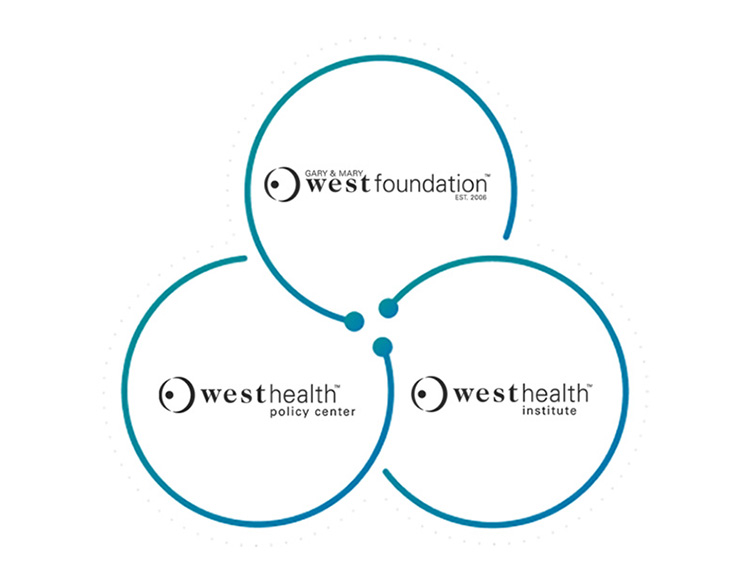West Health stands at the intersection of aging and healthcare. Our three nonprofits work together to fuel new and innovative programs, practices, and policies that ensure successful aging and affordable healthcare for all Americans.
Improving Aging
in America
We’re big thinkers who look for big problems to solve and opportunities to create.
Through a combination of outcomes-based funding, applied medical research, and public policy, the Gary and Mary West Foundation, West Health Institute, and West Health Policy Center are dedicated to lowering the cost of healthcare and advancing sustainable high-quality delivery models to improve care for seniors and their families.

Grantmaking Amplified
The Gary and Mary West Foundation is one of only a handful of private nonprofit foundations in the U.S. solely focused on addressing the needs of vulnerable seniors. Through its grantmaking, it strategically deploys its funding to fuel groundbreaking research, models of care, and resources that improve care for seniors, their families, and all Americans.
Applied Medical Research
Good ideas must be supported by even better evidence. We conduct applied medical research and collaborate with leading researchers and major academic centers to validate new models of care that lower healthcare costs and improve care for seniors.
Policy Driven
The West Health Policy Center conducts in-depth research and provides expert analysis to better inform state and federal policy decisions affecting older adults and their families.
West Health is changing thetrajectory of aging in America.
collaborations
West Health and Hospital Association of Southern California Boost Geriatric Emergency Accreditation for Region’s Hospitals

The Latest News from West Health


